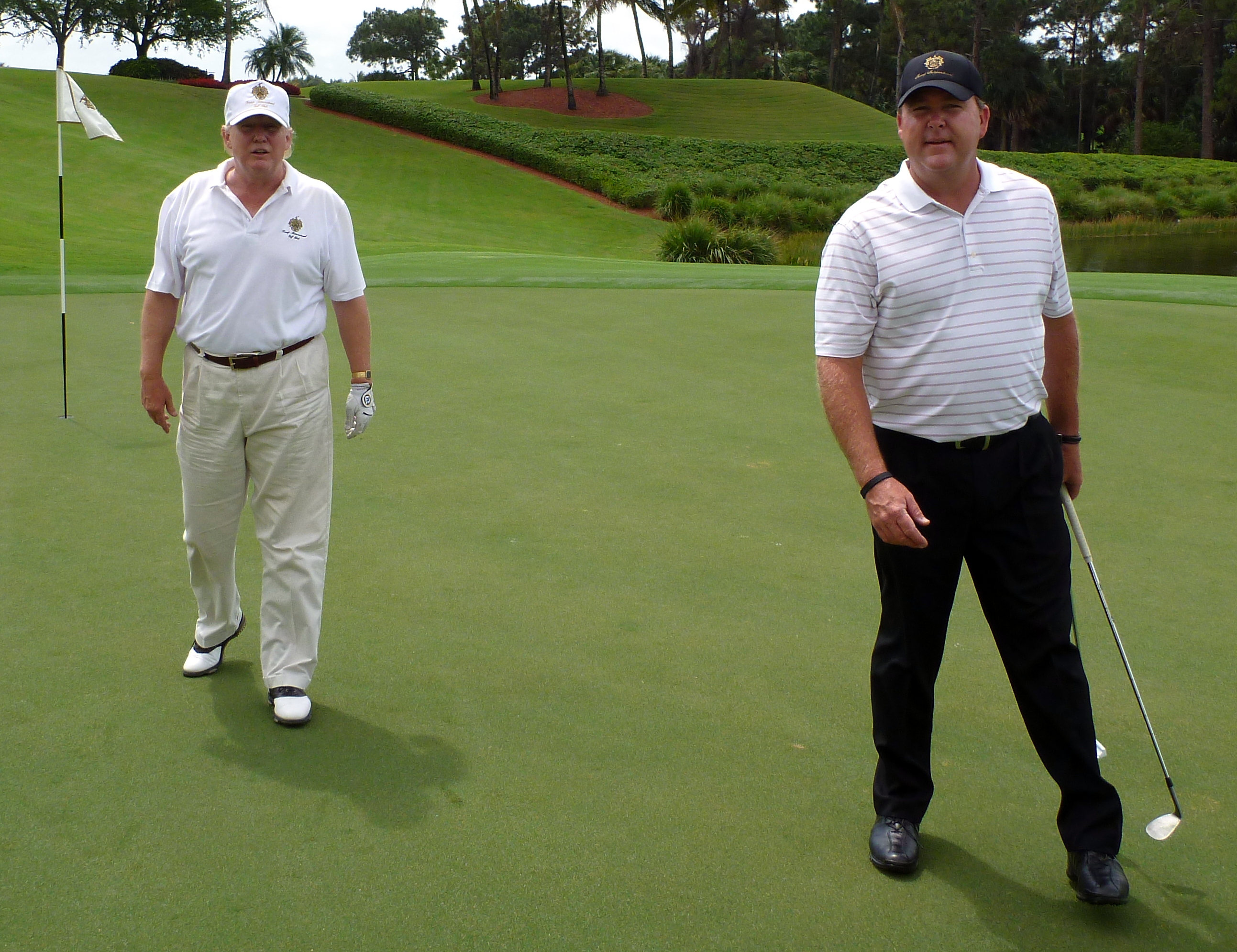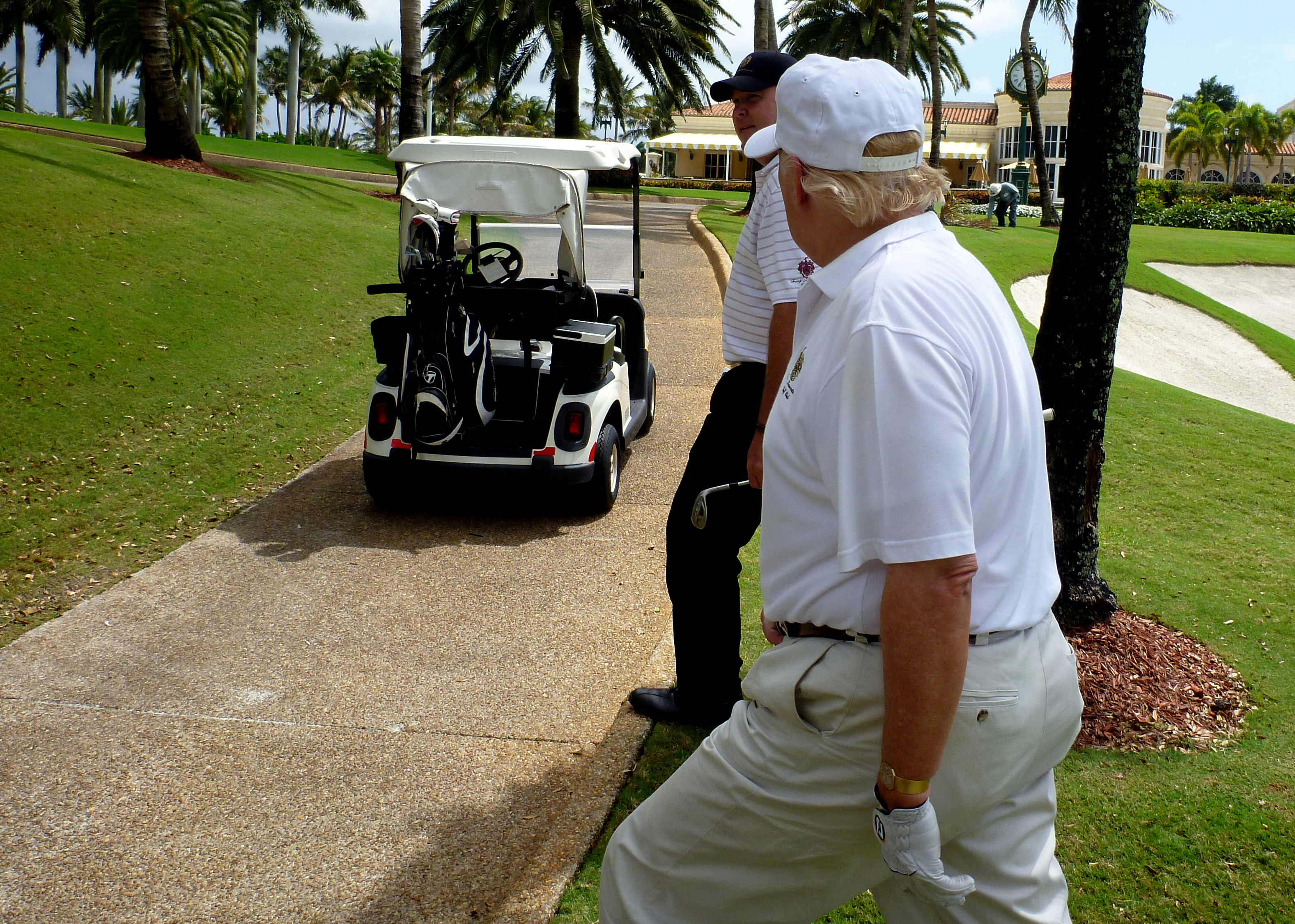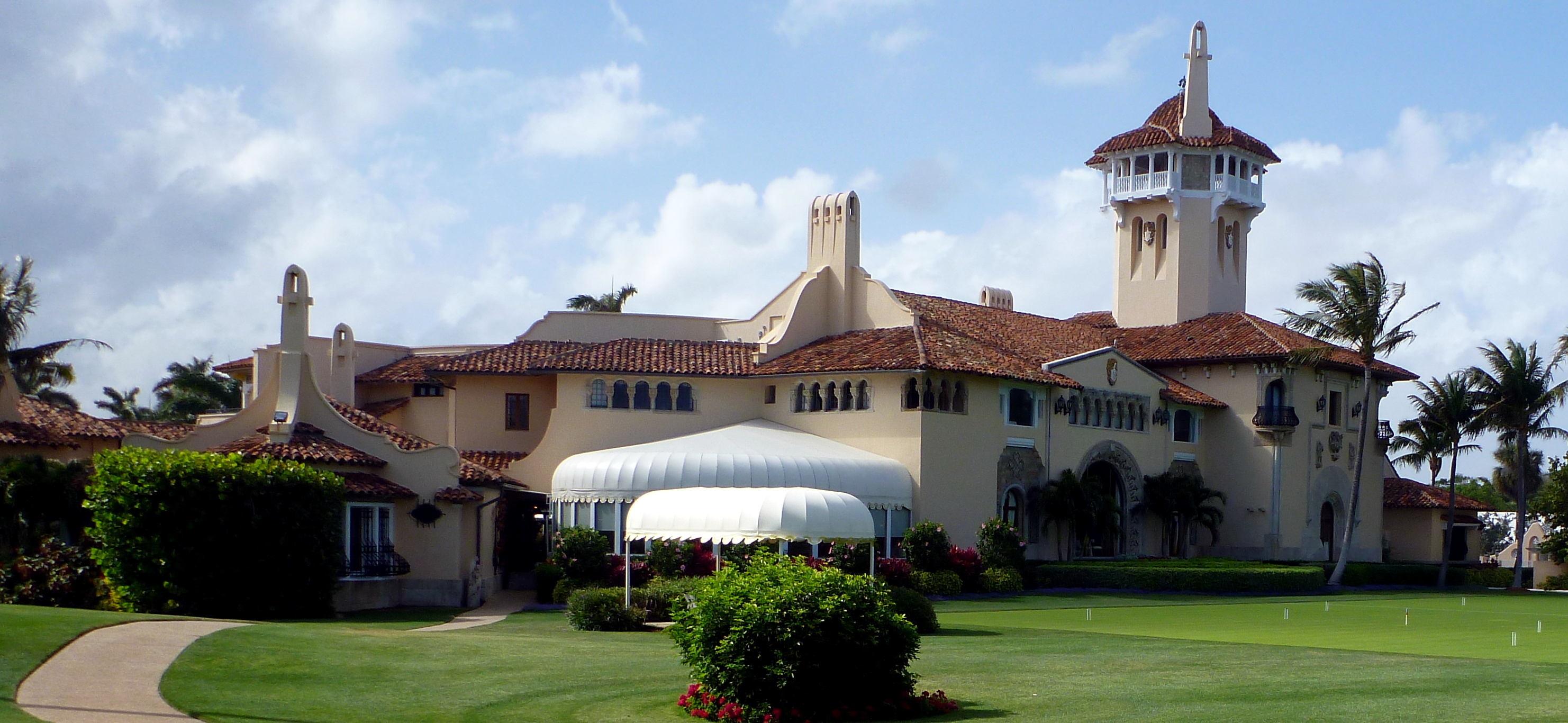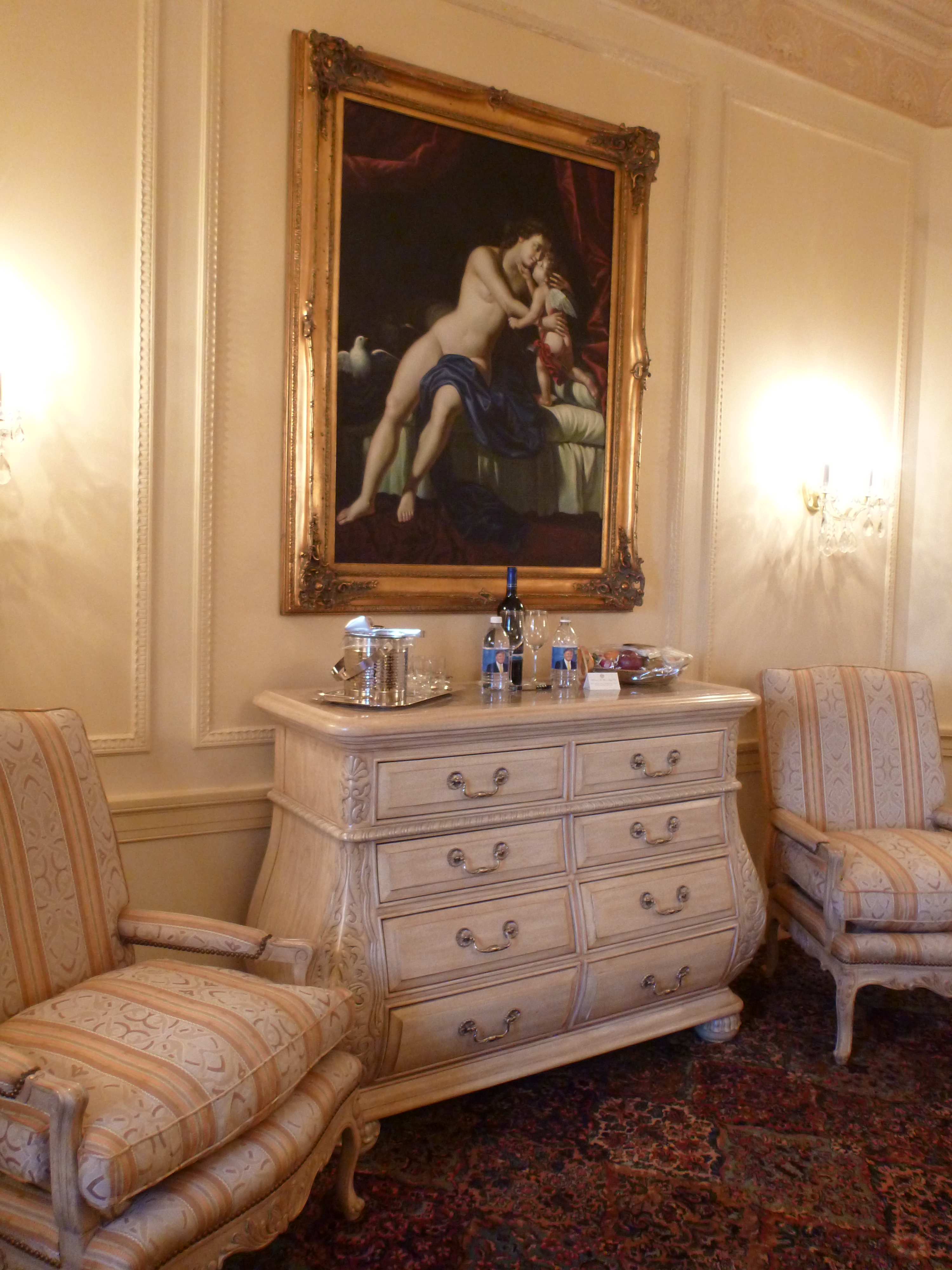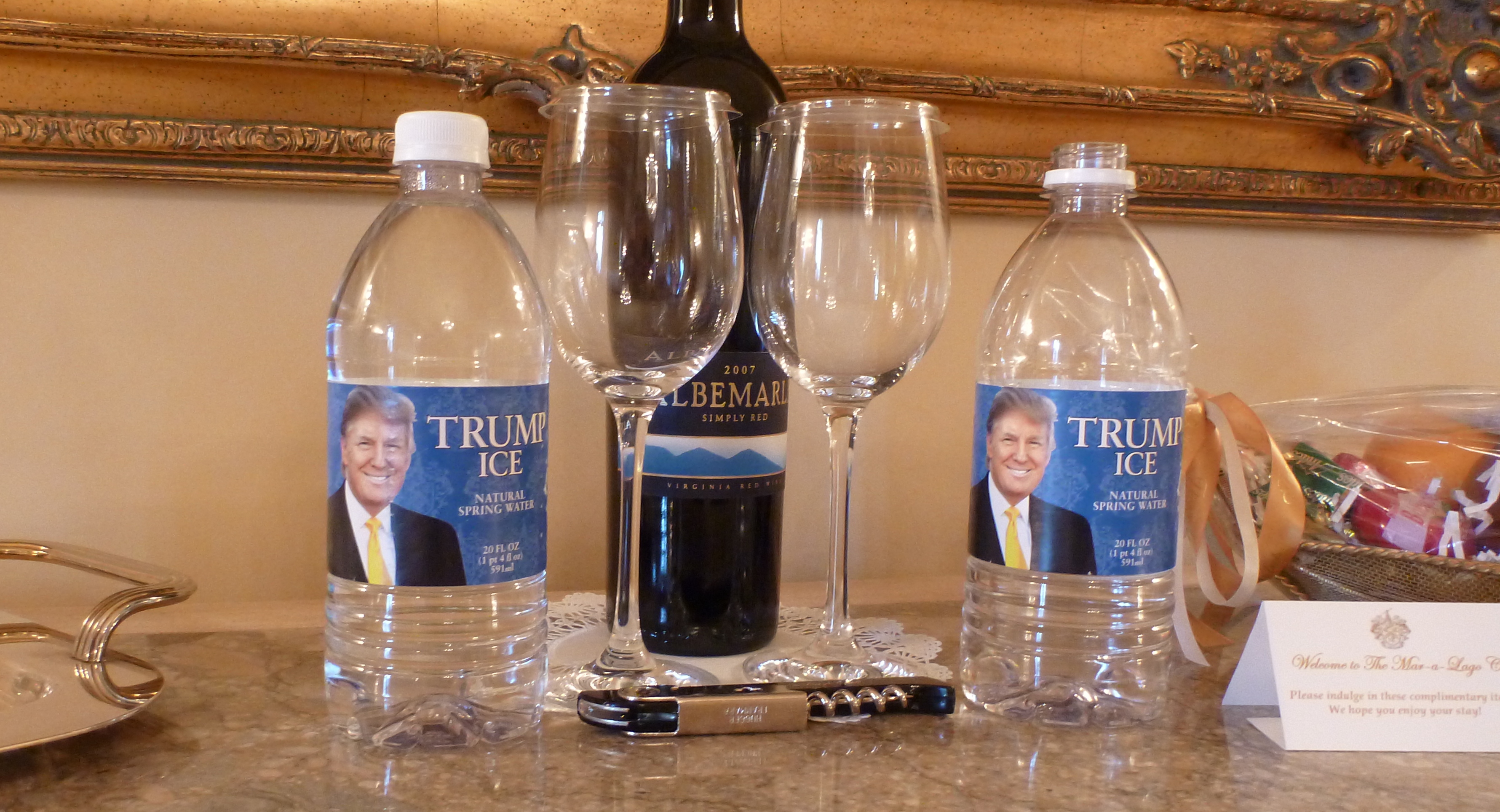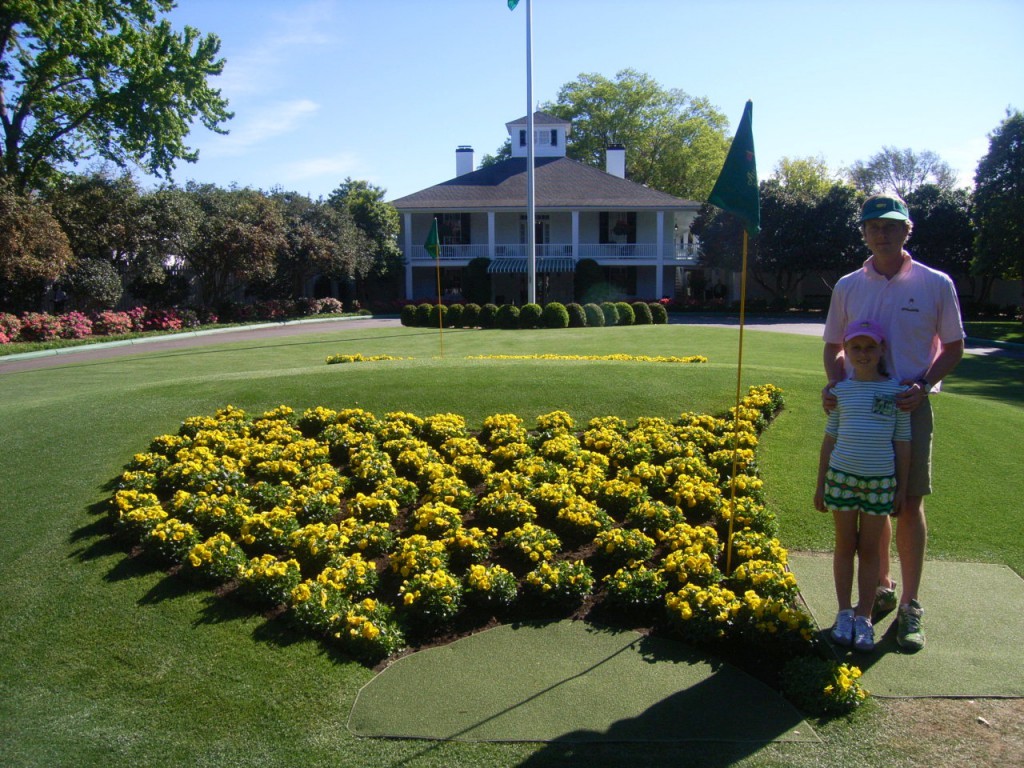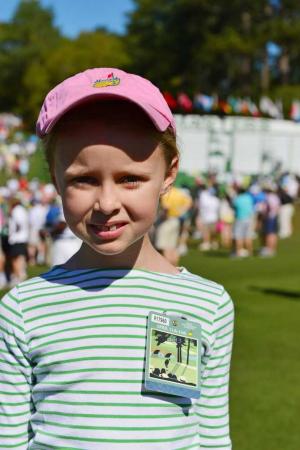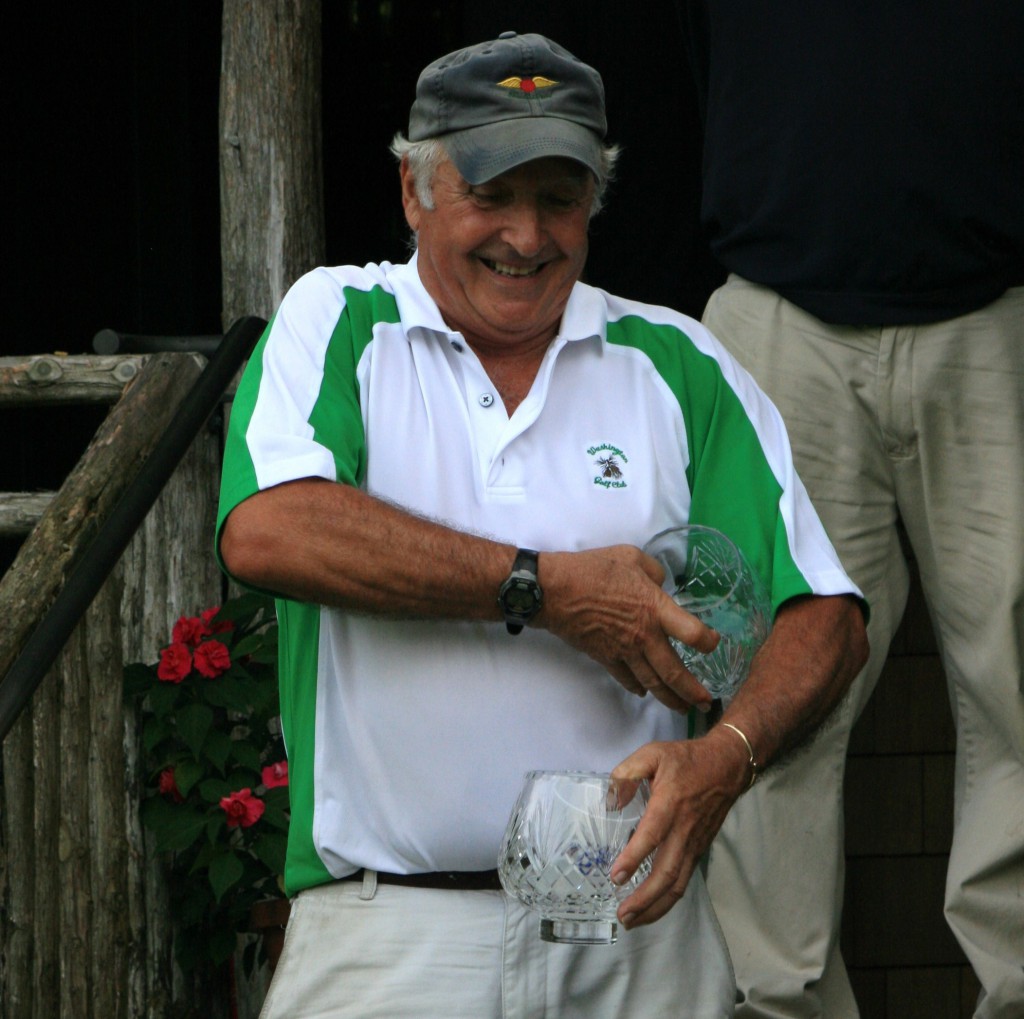
Eleven friends and I just returned from a golf trip to Ireland. Something you have to be ready for when you travel outside the United States is hearing what people in other countries think about whatever the United States has been up to lately—and this year the main thing the United States has been up to is Donald Trump. He’s not easy to talk about with foreigners, because people who haven’t had much exposure to him tend to view him as a standard-issue American greed-driven mega-mogul—Michael Douglas in “Wall Street”—rather than seeing him the way most of his countrymen do, as the only conceivable member of whatever category he actually belongs in.
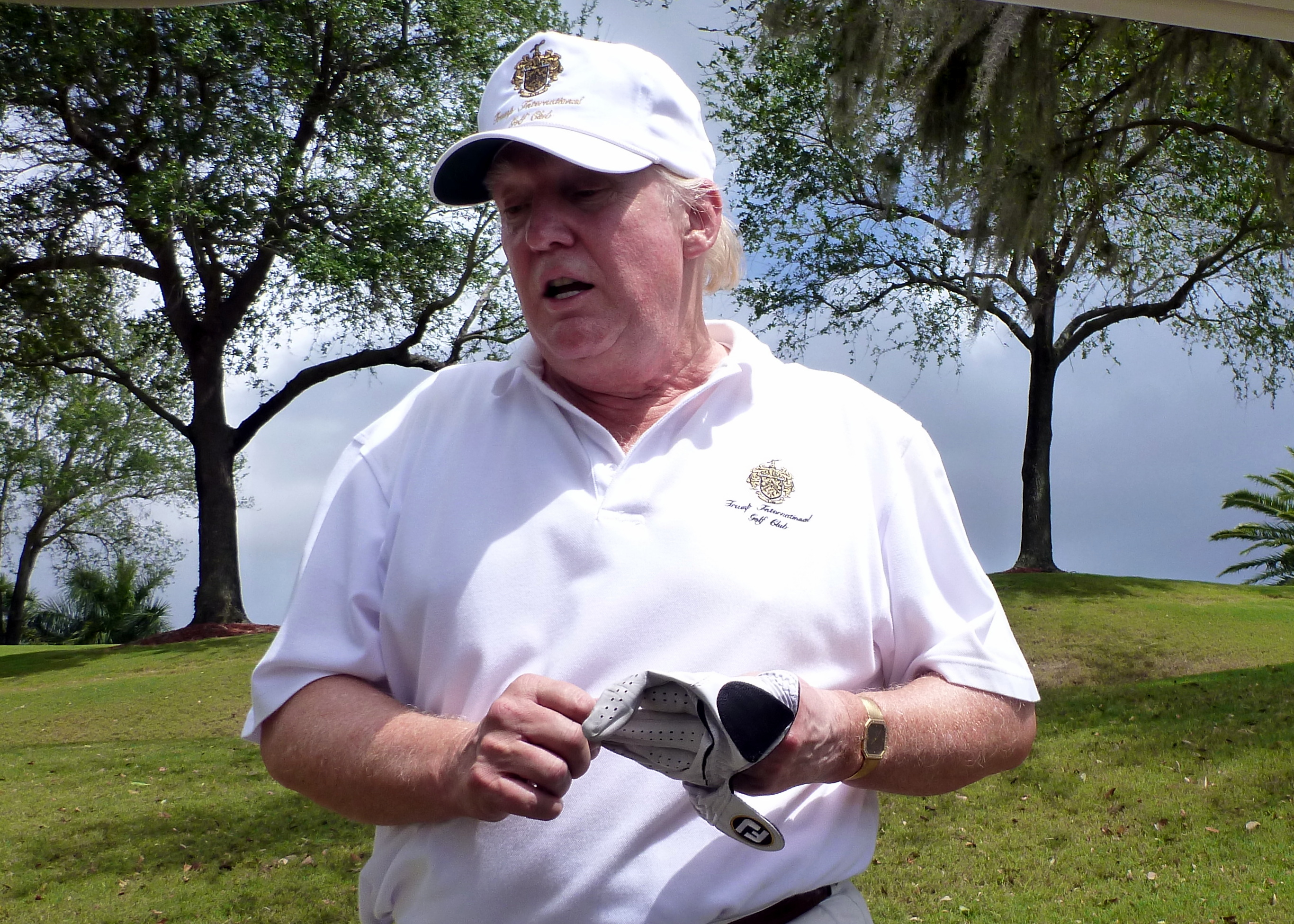
I met Trump four years ago, while working on an article about him and his golf courses for Golf Digest. Our first encounter was at Trump International Golf Club in West Palm Beach. (Trump’s courses, like his buildings, are easy to alphabetize.) When I pulled up at the club’s bag drop, a parking attendant, who was dressed in white trousers, a white shirt and a white cap, stepped briskly toward my rental car. I popped my trunk, palmed a five-dollar bill, opened the car door and then—with a possibly audible gasp—realized that the guy I’d taken for an attendant was actually Trump himself, who had come out to the curb to greet me. I (slipped the fiver back into my pocket and) enthusiastically shook his hand.
In the clubhouse, Trump introduced me to various distinguished members and guests, including the the former tennis star John Lloyd; the CEOs of AT&T, NASDAQ, Macy’s and several other corporations; and the head coach of the New England Patriots, Bill Belichick, and his girlfriend, Linda Holliday. Trump seemed genuinely excited to see all these people—and even more excited to see that I was seeing all these people, right there in his own club. False modesty, much less actual modesty, is not among Trump’s vices. “We have the big people here, in terms of membership,” he said. “Everybody who’s anybody in Palm Beach is a member here. So, anyway. . . .” He invited Belichick and Holliday to come for dinner that night at the Mar-a-Lago Club, which he also owns, then told a waitress that he wanted the golf club to pick up their lunch check. He was being genuinely gracious and welcoming, but you could also see how extraordinarily eager he was to be liked, and to be seen being liked.
Raymond Floyd, who was leading an outing of business executives, walked toward our table.
“The great Ray Floyd,” Trump said.
“Hi, Donald. Don’t get up.”
“You look beautiful.”
“I keep fooling them. That’s what I say. I’m following your lead.”
“I love this guy,” Trump said. “This guy—the greatest chipper. He’s going to teach me how to chip someday. Have a good time, Ray.”
Floyd walked away, and Trump said to me: “He’s a member. We have the best members here. Everybody. He’s a wonderful guy, Ray, actually. And one great competitor. He was the oldest guy ever to win the Open. Remember, at Shinnecock? He was the oldest guy ever to win the Open. Great guy.”
Floyd walked by again. Trump asked him, “How old were you when you won the U.S. Open. Forty-six?”
“Forty-six? No, forty-four.”
“Is that the record?”
“No, Irwin surpassed me by a few months.”
“Oh, I didn’t know that. Ah, you’re something, Ray. How’s your wife doing?” (Floyd’s wife, Maria, was being treated for bladder cancer. She died six months later.)
“She’s doing great. She’s cancer-free.”
“Give her my regards,” Trump said. Then, to me: “His wife had a little problem, to put it mildly, but I’m hearing good things.”
“We go every three months,” Floyd said. “We go back in the first of next month.”
“That’s great. She’s a fantastic woman. She kept him under check, which is not easy, OK? I knew him before and after.”
“Changed the lifestyle.”
“She did a good job. Ivanka tells me Christina’s doing good.”
“I think she’s using Ivanka’s baby nurse.”
“Well, Ivanka has good taste, so follow Ivanka. Have a good time, Ray. Enjoy it.”
Floyd went out to join his corporate clients, and Trump, beaming, said, “So, I do it for fun. It’s become a very successful business, because of the level of quality. When other clubs are empty, everybody wants to join here. And by ‘here’ I mean all of my clubs. Every one of them works, and works really well.” We talked quite a bit about his course in Aberdeen, Scotland, which was just about to open. “Look, I get a kick,” he said. “I know Bandon Dunes. The biggest dune there is like one tenth the size of our smallest dune. It’s a toy. And they get such great reviews. Every one of my courses is, like, amazing.”
Either you find Trump’s manner repellent or—because his need is so palpable that his fawning seems guileless—you can decide to give him a break and be impressed by whatever it is that he wants you to be impressed by. “Palm Beach is the richest place anywhere on the planet, in terms of, you know, wealth,” he said at one point. “And yet it takes me four minutes to get to my course from Mar-a-Lago. That’s called location. The course was designed by Jim Fazio [Tom’s brother], and it’s considered the best one in Florida, but even if it were terrible it would be a big success, because of where it is.” And so forth.
The easiest thing to do is to nod, even if you aren’t quite sure what you’re nodding about. At one point, Trump pointed to some nice-looking trees on the golf course and said, “Those trees cost $25,000 apiece—but of course I got them for less”—a sort of double-reverse brag, since he wanted me to be impressed by both how expensive the trees were and how little they had cost. Similarly, when we were talking about the golf courses he owns, he said, “I don’t believe in building them now, because I can buy them for 10 cents on the dollar—so why should I build them? Although the prices are going way up. There was an article recently. Because of me, people are starting to say, Wow, what a good investment.” Golf courses are cheap—but because of Trump they’re also expensive. It’s a fine line.
After lunch, in the locker room, Trump introduced me to a man he called “the richest guy in Germany.” To be a member of one of his clubs, you have to have a high tolerance for that sort of thing: other people’s wealth is one of his main topics, when his main topic isn’t his own wealth. And, apparently, there are quite a few people who do have a high tolerance for it. (The face of “the richest guy in Germany” lit up when Trump called him that; a woman he introduced to me, on the driving range, as “a very rich lady” didn’t seem bothered at all.)
We ran into the crooner Vic Damone, who was getting ready to play golf. Trump knew that Damone’s wife had had a stroke not long before, and, by way of conversation, he said that he would gladly “be a character witness” for Damone in any legal action her children might take to prevent him from receiving any of her estate—his version of brotherly compassion. I told Damone that I was sorry about his wife’s illness. He seemed shaken, but said that she was a little better. He said that he had been staying up with her at night and sleeping in the afternoon, and that recently he had begun playing a little golf late in the day, as a break. Trump told me later that Damone and his wife had met at Mar-a-Lago, where she was staying and he was singing—and added (for the second time) that she was worth $900 million.
That night, Trump put me up at Mar-a-Lago, in a room called the Adam Suite, whose next resident, the woman at the front desk told me, was going to be Bill Clinton. An hour or so after I checked in, the phone rang—and it was Trump, calling to make sure I was still having a good time. (The night before, he’d called my home, in Connecticut, to make sure I was really coming down. I was already in Florida, so he chatted with my wife, and invited her to come, too.)
We met for dinner at 8. It was seafood-buffet night at Mar-a-Lago, and Trump ate roughly a lobster and a half’s worth of shelled lobster claws and split lobster tails, then went back and for big plate of sweet-and-sour shrimp on rice. As we were standing near the buffet line, one of the Nederlanders, of the Nederlander Organization, greeted Trump warmly, and said something like, “Donald, you’ve done a great job, and you’ve done it all by yourself, independent of your father’s accomplishments”—something so on-the-mark, in terms of Trump’s clear yearning for affirmation and reassurance, that I thought Trump might be embarrassed. But he beamed. And back at the table, speaking of Nederlander, he told me, “Off the record, he says my golf course is the best one in Florida.” (By “off the record” Trump means roughly the opposite of what other people mean by it. At lunch, he had told me about some trees he had gotten in trouble for cutting down, on a golf course he owns near Washington, D.C. “You probably heard about that,” he said. “It’s the only place on the Potomac River without trees. Off the record, I took down the trees and made the front page of the Washington Post four days in a row.”)
While we were having dessert, two giggly little girls from New Jersey, whose parents were part of a group from Trump’s golf club in Bedminster—“one of the richest places in the country”—came over to our table and asked Trump to dance. He said that he would dance with them in Bedminster. Then he asked them if they wanted to be supermodels when they grew up. (They said yes). Then he asked them to kiss him. (And they did.)


